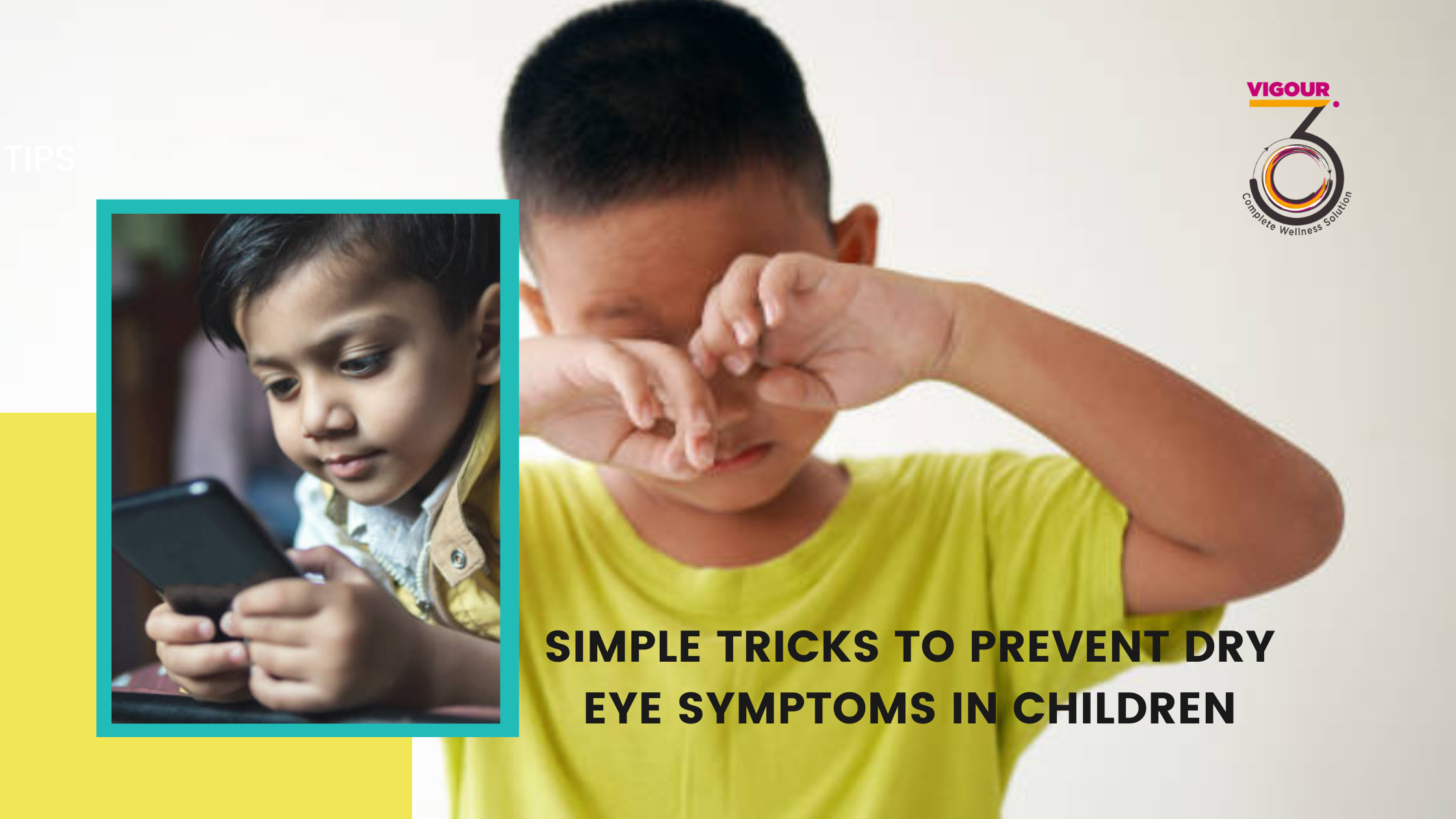
Children’s dry eyes are rare, but it requires attention from parents as they can drastically affect ocular health. Paediatric dry eye syndrome can be due to nutritional deficiency, allergy, use of digital screens excessively or other disorders. Dry eyes can cause discomfort, pain, and itching as well as affect performance in school activities.
The following symptoms are alarming for parents, if any of the symptoms present seek help from an eye specialist.
Dry eye is also named keratoconjunctivitis sicca or dry eye disease (DHD). It is due to the loss of homeostasis of the tear film. The tear film is a thin fluid layer which covers the ocular surface. In other words, when the tear film is disrupted due to increased evaporation or reduced tear production, the cornea can easily damage, and the chances of inflammation are high.
Dry eyes in children can be a lifestyle disorder due to excessive usage of digital devices such as computers, smartphones, video games etc. Sometimes it may be due to underlying systemic conditions of congenital, autoimmune, or endocrine origin.
Moreover, nutritional deficiencies such as vitamin A can cause dry eye symptoms in children. Ocular allergy also gives rise to inflammation, and dryness and affects nerves. Studies also show long-term use of contact lens contributes to children’s dry eyes.
.png)
Here are simple tricks to prevent dry eye symptoms in children:
It is a useful technique for managing dry eyes. It relaxes surrounding eye muscles and restores tear production.
Parents, you cannot instantly stop dry eye symptoms in children however following healthy habits for eye care can eventually decrease the dryness of eyes. Apart from this, professional eye check-up visits are highly recommended for kids.
Dry eyes are rare in children and many a times occur due to underlying disorder. Seek medical attention if you see dry eye symptoms in kids. Overuse of screens is leading cause of dry eyes I children nowadays.
Vitamin A deficiency causes dry eyes. Vitamin A rich foods such as carrots, pumpkin, apricots, spinach, tomatoes, dairy products should be included in everyday diet to improve eye health.
Vitamin B2 prevents cell damage in eyes. The sources include Avocados, broccoli, whole-grain food etc.
Vitamin B12 keeps eyes lubricated and it is found in eggs and dairy products in small amounts.
Vitamin C has crucial role in function of tear film as well as it works against oxidative stress. The sources include citrus fruits, cruciferous vegetables, strawberries, tomatoes, sweet potatoes etc.
Vitamin B6 helps to maintain healthy tear film. Sources include kale, potatoes, goose, mackerel, salmon and sardines
Lastly Vitamin E is vital to protect your eyes against cell damage. The sources include sunflower oil, peppers, spinach, mangos.
Vigour360 School Health Program facillitate comprehensive health check-up for students with AI powered devices,To learn more connect with us.
Comments (0)